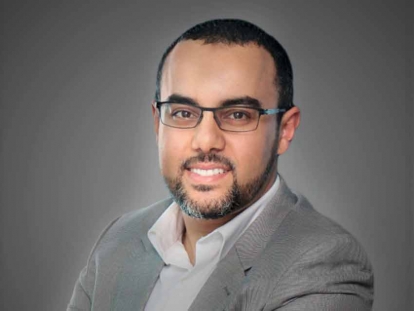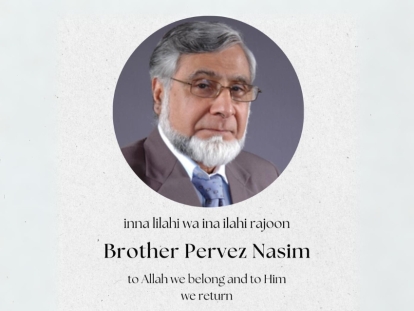
Mar
ShariaPortfolio Brings Halal ETFs and Halal Investment Services to Canadians
Written by Sawitri MardyaniWhen he founded ShariaPortfolio in 2003, CEO Naushad Virji received many well-intentioned suggestions to choose a different name. Being in the United States, just a couple of years after 9/11, the wariness about the word "Sharia" was understandable. But Virji had no qualms about it. "Anyone who had an issue with the name wasn't a client that we're looking to serve," he says simply.
As its name implies, ShariaPortfolio is a wealth management firm that's dedicated exclusively to Sharia compliant or halal investing. Whether it's saving to buy a home, for education, hajj, retirement or charity, ShariaPortfolio helps clients reach their financial goals with investments that align with their values. They help clients decide when and where to invest, guide them on how to reduce their taxes and create investment income for themselves and their families.
What started as a specialized service offering of Virji Investments, ShariaPortfolio met such overwhelming demand that it was spun off into its own corporation in 2014, where it grew to serve clients in 26 states. Over the next few years it spawned the ShariaPortfolio group of companies, including ShariaPortfolio Canada, which became a licensed Canadian portfolio management firm in January 2020; and ShariaPortfolio Global, which serves clients around the world; and SP Funds, which boasts "North America's Largest Family of Sharia Compliant ETFs". ShariaPortfolio now manages over $250 million in assets.
ShariaPortfolio Canada
As ShariaPortfolio grew in the United States, they started being approached by Muslims who were looking for the same service in Canada. Given limited and expensive options in halal investing, including mutual funds with management expenses between 2.5 - 3% per year, ShariaPortfolio's lower fees (0.5% - 2.0%) were a welcome alternative. Coincidentally, although he had lived in Florida for over 40 years, Virji himself had been looking to Canada as an ideal place to raise his family. "No one does multiculturalism better than Canada," he explains.
In 2017, he moved his family to Vancouver to launch ShariaPortfolio Canada. Because of Canada's stricter regulatory environment, the process of becoming a licensed portfolio management firm took a year an a half -- more than three times longer than it took in the US. In January 2020, ShariaPortfolio Canada opened its doors to new clients.
Of course, no one knew at that point that we would be heading towards a global pandemic with devastating economic lockdowns around the world.
While launching an investment firm in midst of unprecedented global economic uncertainty appears to be a case of unfortunate timing, it had the serendipitous benefit of showcasing the resilience and superior performance of ShariaPortfolio's halal investing strategy. This is most clearly illustrated with a Sharia compliant index fund that they created based on the S&P 500.
ShariaPortfolio Funds
In partnership with S&P Dow Jones Indices, SP-Funds has created ETFs, which give Muslims from around the world access to a wide variety of halal investments which were simply out of reach before.
An ETF is an Exchange Traded Fund, which is a basket of securities, like stocks, that you buy and sell through any brokerage account that has access to the New York Stock Exchange. The benefit of an ETF is that you get exposure to a wide range of investments within one fund.
S&P 500 Halal ETF
The SP Funds S&P500 Sharia Industry Exclusions ETF (ticker: SPUS), contains all of the Sharia compliant stocks within the S&P 500.
The S&P 500 is an index that contains the 500 largest companies in the US market. Investing in a fund that contains all the components of an index has become a popular strategy. It reduces risk by maximizing diversity, while simultaneously reducing costs, since there is no need for a fund manager to do analysis and research to pick and choose stocks. The index fund simply includes everything. This is the strategy that's been advocated by legendary investor Warren Buffet who regularly recommends a low cost S&P 500 index fund for most investors.
Sharia Compliance Screening
Because the S&P 500 contains companies that hold a lot of debt, or produce weapons, alcohol and pork, profit from interest or other non-halal business activities, a regular ETF based on this index would not be Sharia compliant. SP Funds uses the rulebook established by the Accounting and Auditing Organization for Islamic Financial Institutions (AAOIFI) to screen the companies listed in the S&P 500 and ensure that only Sharia compliant companies are included in SPUS. As Sharia compliance rulebooks go -- and there are a number of them being used in the Islamic finance field -- AAOIFI is considered the gold standard because it is particularly stringent.
A business activities screen excludes companies that derive more than five percent of their total income from non-compliant income sources. These include alcohol, gambling, weapons, tobacco, adult entertainment, pork products, interest-based businesses, music, cinema and broadcasting. Among other criteria, the financial screens exclude companies who hold interest bearing debt that is more than 30% of their 12 month average market capitalization (i.e. the share price multiplied by the number of shares outstanding). As a result, companies which hold high levels of debt are excluded from SPUS.
SPUS currently contains around 200 Sharia compliant companies from the S&P 500. The constituents of SPUS are re-examined monthly to ensure that they continue to meet the criteria for Sharia compliance. A list of the companies that comprise SPUS can be found in SP Funds' semi-annual report.
Performance Compared to S&P 500
One might assume that implementing these restrictions and excluding so many companies would mean sacrificing profits but the experience of 2020 has shown otherwise. In the crash caused by the Corona virus lockdowns in March, SPUS dropped slightly less than the S&P 500 (from February 19, 2020 to March 23, 2020, SPUS went down 30.8% while the S&P 500 went down 33.9% ). More impressively, SPUS significantly outperformed the S&P 500 index in the year 2020 (from January 1, 2020 to December 31, 2020, SPUS went up 21.4% while the S&P 500 went up 14.9%).
This makes sense to Virji who explains that, "when you avoid companies that have a lot of debt, that's a recipe for success." In fact, he's found that most of the people who buy Sharia compliant products aren't even Muslims who are looking to keep their investments halal. "Two-thirds are people who are using Sharia-compliant products as a means of reducing risk in a portfolio because of the fact that we’re in companies with lower debts," he notes.
Sukuk Halal ETF
A second ETF that SP Funds also launched in partnership with S&P Dow Jones Indices in December 2019 is the SP Funds Dow Jones Global Sukuk ETF (ticker: SPSK). A sukuk is a fixed income investment that is based on leasing an asset to a company.
Fixed income investments are used to reduce risk and generate a steady, reliable income from investments. In conventional (non-Sharia compliant) investing, this usually comes from bonds, which are interest-based loans. Since interest is haram, the entire fixed income bond market is off limits to Sharia compliant investors.
In a sukuk, investors aren't simply lending money to a company and collecting the interest. They're purchasing an asset, such as an airplane or another large piece of equipment, for example, and then leasing it to the company. That lease income then comes back to the shareholders.
To invest in a sukuk generally costs $200,000. That would be investing in just one sukuk that works in one country or sector. So this is not something that any average investor could do. The SPSK ETF contains dozens of sukuk from different sectors and countries around the world. SPSK has a yield of around 2.5% so if you invested $1000, you can expect to receive $25 per year or $2.08 per month.
Real Estate Halal ETF
The third ETF that SP Funds just launched in December 2020 is the SP Funds S&P Global REIT Sharia ETF(ticker: SPRE). It's an ETF that tracks the S&P Global Shariah All REIT Capped Index which is designed to measure all Sharia-compliant constituents of the S&P Global REIT Index, a comprehensive benchmark of publicly traded equity REITs listed in both developed and emerging markets. SPRE currently contains 34 Sharia compliant Real Estate Investment Trusts (REITs) from around the world. For more information about Real Estate Investment Trusts and how they can reduce risk and generate income in a halal portfolio see here.
Halal Investing with ShariaPortfolio
Since all of SP Funds' ETFs are listed on the New York Stock Exchange you can purchase any of SP Funds' ETFs through a brokerage account that has access to the New York Stock Exchange. This is ideal if you like to manage your own investments or you already have a financial advisor who can add these funds to your portfolio.
If you're just starting out in halal investing, ShariaPortfolio Canada's Express service connects you to a financial advisor who helps you set up a halal investment portfolio in either a tax sheltered account such as an RRSP or TFSA or a non-registered cash account. Depending on your goals and risk tolerance, your advisor will distribute funds among ETFs which diversify your investments into stocks, fixed income and gold. Your advisor will also have yearly reviews in which you'll look over your investments and make adjustments as necessary. The minimum investment is $1000 and the fee is 0.5%.
If you have more than $100,000 to invest, ShariaPortfolio's Access service will help you create a customized portfolio with individual halal stocks that will be actively managed. Your portfolio may include ETFs, individual stocks or a mix of ETFs and stocks. Your advisor will keep tabs on your investments and consult with you regularly to buy or sell particular stocks as the market moves. The fee for this actively managed customized investment service is 1.5%.
For more information on how to invest with ShariaPortfolio Canada, go to shariaportfolio.ca.
This article was produced exclusively for Muslim Link and should not be copied without prior permission from the site. For permission, please write to info@muslimlink.ca.
This article was produced exclusively for Muslim Link as part of a paid advertising package. For more information on how to advertise through Muslim Link and support the running of Canada's Online Hub go here.















